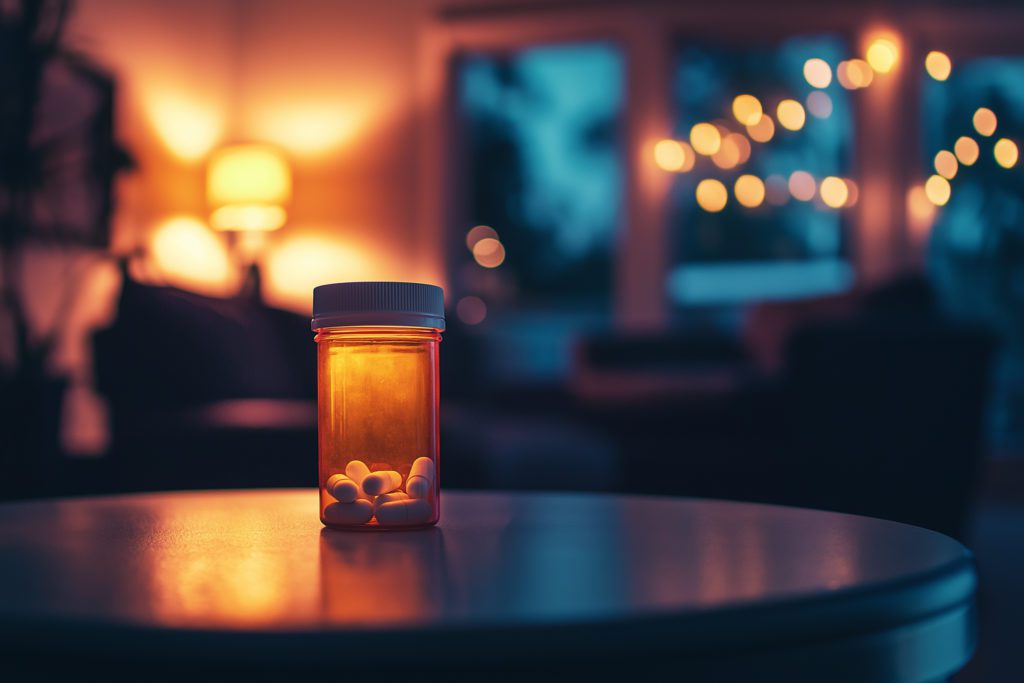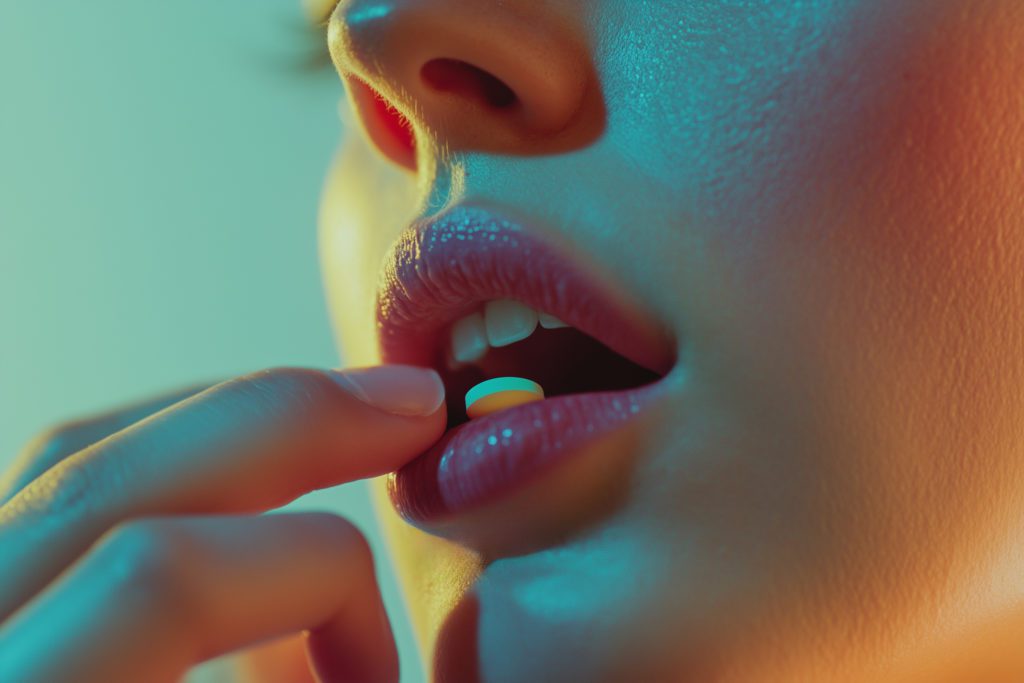
Medication and Sleep: How Prescription Drugs Can Impact Your Sleep
Taking a prescription? Learn how prescription meds like stimulants and antidepressants affect sleep quality and what this means for your nightly rest.

Did you know that your medications can actually impact the quality of your sleep? We might not often think about it, but what we take to help with other chronic conditions can affect our quality of rest. In some cases, the pills we take daily can lead to improved rest, but in others, we might find that we experience disruptions, poor sleep, and other challenges. If you’re curious about how your medications might impact your rest, you’ve come to the right place.
In this article, we’ll explore how medications like stimulants, depressants, antidepressants, and others can affect your sleep. We’ll even dive into how blood pressure medications can affect you and medicines like antihistamines, corticosteroids, and others. By the end, you’ll understand more about how your medicine impacts your health. Let’s begin with stimulants!
Stimulants Make It Harder to Fall Asleep
Stimulants are common prescriptions you might be given to help with staying alert, especially if you have conditions like ADHD, ADD, or others. However, they can lead to negative impacts on your overall sleep quality. For example, one study suggested that stimulants, including caffeine and common medications for ADHD, can actually delay sleep and increase alertness, making it easier to function but harder for people to sleep.
So, in other words, if you take stimulants, you’re more likely to be able to stay awake, and it can be harder for you to get to bed. This can work well for those who need to be alert during the day, but taking it too close to the evening can hinder your sleep. That’s why it is always a good idea to follow recommended dosages and avoid caffeine right before bed!
Depressants Encourage Sleepiness
Unlike stimulants, depressants and other sleep aids are well-known for their ability to encourage sleepiness and relax the body. These prescriptions have the opposite impact on our sleep, but they can also quickly become necessary, as people can easily become dependent on depressants. However, even despite this, the research still shows how impactful these can be for those seeking quality rest.
A study on women before, during, and after their breast cancer treatment showed that the use of sleep aids could help people overcome sleep challenges with daily use. However, there are still risks and issues for those who continue to use them long-term, which is why it is so essential for people to consider alternatives and alterations to their lifestyle to encourage restful sleep and relaxation before bed. Sleep aids or depressants made with natural substances can improve sleep duration and enhance one’s sleep quality.
Antidepressants Can Cause and Worsen Sleep Disorders
While depressants are among the most helpful for sleep, antidepressants can cause a lot of harm to people’s sleep architecture and overall rest. Many studies have confirmed that antidepressants, like SSRIs and SNRIs, can cause insomnia, hypersomnia, and other conditions. Furthermore, those who have sleep disorders like restless leg syndrome and REM sleep behavior disorder may experience a worsening of their sleep disorder over time due to this medication (Source: Current Psychiatry Reports).
If you’re looking to improve your sleep, your antidepressant might be causing you more harm than good. Because of how it can worsen your sleep disorder, it might be a good idea to discuss this with your doctor to ensure you find the proper medication for you. Similarly, blood pressure medications are known to potentially cause sleep disturbances, too, which we will explore in-depth next.
Blood Pressure Medication Can Lead to Sleep Disturbances
While blood pressure medication is a necessary part of people’s daily lives and maybe even your own, it might lead to sleep disturbances. For many elderly patients, research has confirmed that this medicine helps ensure blood pressure regulation during slow-wave sleep, thus proving its effectiveness in supporting cardiovascular health. Unfortunately, there are other effects, like the potential development of obstructive sleep apnea.
Patients who take blood pressure medication might experience elevated blood pressure regardless of the medication if they have untreated obstructive sleep apnea (Source: Journal of Clinical Sleep Medicine). In other words, the medication might not even work as it is meant to—to regulate your blood pressure—if you have sleep apnea. If you believe this might be a situation you’re experiencing, it is recommended you discuss this with your primary care provider.
How Antihistamines and Corticosteroids Impact Your Sleep
If you are prescribed regular antihistamines, you might have noticed how tired these medications can make you. Studies share that allergy medication can increase daytime sleepiness, and it might even improve your nighttime sleep quality. That might be why taking a single allergy dose can leave you feeling a little tired and like you need a cup of coffee!
Those who take corticosteroids will not only experience fewer symptoms but also enjoy better sleep. Studies have shown that patients who take these medications have improved sleep and experience less sleepiness as a result. That might explain why, when you take a corticosteroid, you begin to feel just a little bit better and a little bit more alert. Compared to other medication types we have discussed, this medication has a less harmful impact on your sleep, which is excellent news for those who must take these regularly.
How Does Your Prescription Affect Your Sleep?
We’ve explored medications from antidepressants to beta blockers to allergy medication, learning more about how these pills might impact our sleep health. No matter what prescription you might have to take, it is essential for you to take steps to protect your health. If you are worried about your sleep due to your prescription, it is always a good idea to consult with your doctor to see if there are any alternatives you can pursue that also support your sleep.
If you’re eager to learn more about sleep health so you can enjoy better rest, visit our website today to read the latest articles from our sleep experts.
FAQ
Can beta-blockers prescribed for heart conditions affect sleep?
Yes, beta-blockers (e.g., propranolol, metoprolol) lower melatonin production, leading to insomnia, vivid dreams, or frequent awakenings. Some people experience restlessness at night. If sleep issues persist, doctors may recommend alternatives, like nebivolol, which has fewer sleep-related side effects.
Are there sleep-related side effects associated with corticosteroids?
Corticosteroids like prednisone can cause insomnia, increased energy, and vivid dreams, especially when taken later in the day. They may also contribute to anxiety, making it harder to relax at night. To minimize sleep disruption, they are often prescribed for morning use.
Are there sleep implications with cholesterol-lowering medications?
Some statins (e.g., atorvastatin, simvastatin) are linked to insomnia, muscle pain, and vivid dreams. While research is inconclusive, some patients report sleep disturbances. Taking statins earlier in the day or switching medications may help reduce sleep-related side effects.
Do asthma medications interfere with sleep?
Bronchodilators like albuterol can cause insomnia, increased heart rate, and restlessness. Oral corticosteroids for asthma may also disrupt sleep. Some long-term asthma treatments affect REM sleep, leading to more nighttime awakenings, making symptom management crucial for good rest.
Do blood pressure medications lead to frequent nighttime awakenings?
Diuretics cause increased urination, leading to nighttime bathroom trips. ACE inhibitors may trigger coughing, and beta-blockers can interfere with melatonin production, all contributing to poor sleep. Adjusting medication timing may help.
Do stimulant medications for ADHD affect sleep differently in children and adults?
ADHD medications like Adderall and Ritalin can cause insomnia, especially when taken late. Children may experience more delayed sleep onset than adults. In some cases, non-stimulant options or an adjusted dosage schedule may help reduce sleep disturbances without affecting focus.

Written by
Marie Soukup
Marie Soukup is a seasoned copywriter, editor, and Integrative Nutrition Health Coach with a certificate from the Institute of Integrative Nutrition (IIN). With years of experience working with brands across diverse industries, Marie is passionate about holistic health and crafting compelling content.
Download Pillow
Get help
Press & News
Legal
Connect
X (Twitter)
Company
Copyright © Neybox Digital Ltd.



